As a result of the relatively new nature of the current democratic dispensation, it is difficult to arrive at the precise statistics of governors and top politicians whose children attend Nigerian schools, from primary to tertiary. But judging from past experiences, less than 0.5% of Nigeria’s nearly top 2,000 politicians attend Nigerian schools, especially universities. These include people in the presidency, state executives, judiciary and state assemblies, national assembly, federal ministries and agencies, and tertiary institutions.
In the last two political dispensations, it was only Ayo Fayose of Ekiti State, Chris Ngige of Anambra State and Nasir el-Rufai of Kaduna who were known to have trained their children in Nigerian schools, especially primary and university education. Unfortunately, many state governors always dramatize their feats in education; achievements they do not trust enough to have their children take part in.
Join our WhatsApp ChannelIn 2019, then Kaduna State governor, Mallam Nasir el-Rufai, fulfilled a 2017 promise to send his child to a Nigerian school after attaining six years of age. He later enrolled the young lad in the Kaduna State-owned Capital School, Malali. The media went afire on the news as an indication that it is not a tradition for politicians in general and governors in particular to train their wards in Nigerian schools. The reason is very simple. Nigerian schools are dilapidated and face many security challenges that cannot fit a politician’s child. Even at that, there were confirmed reports that the then 62-year Capital School had gulped a princely N195 million in renovations to be a bit befitting for a governor’s child.
READ ALSO: Ex-Minister Chidoka Proposes 6 Measures To Upgrade Education System In Nigeria To Int’l Standard
Shamelessly, former governors el-Rufai (Kaduna), Nyesom Wike (Rivers), Badaru Abubakar (Jigawa State) and others such as former vice president, Yemi Osinbajo, attended lush graduation ceremonies of their children at different times in foreign universities in 2022, while the Academic Staff Union of Universities in Nigeria was on a strike that lasted eight months, with as much salary seized by government. Between 1999 and 2023 (24 years), members of the Academic Staff Union of Universities (ASUU) went on strike 19 times, spending about 2,082 days in the process or five years and seven months.
No Stopping the Politicians
In a bid to force politicians to patronise Nigerian schools, erstwhile presidential candidate of the African Democratic Congress in the 2023 election, Dumebi Kachikwu, in late March packaged a bill for the National Assembly, which proposed that a public official “shall patronise public education system for the education of his/her child or ward at nursery, primary, secondary and first-degree university levels.” The bill also proposed that public officials and all their relatives shall use only hospitals within Nigeria unless permitted by the Senate to do otherwise as a result of a verified lack of material or personnel. The Bill is seeking to enact the National Patriotic Act, and also has provisions about politicians and police escorts.
Recall that The House of Representatives in March 2022 rejected a similar bill sponsored by a member of the House, Sergius Ogun. It was the second time in four years such a bill would come, and still get thrown out. Ogun called his proposed law: “A Bill for an Act to Regulate International Studies for Wards and Children of Nigerian Public Officers, to Strengthen Indigenous Institutions, Provide Efficient Educational Services for National Development; and for Related Matters.” While trying to push the bill he argued that “Ghana alone gets N160bn of Nigerian students’ funds, while the United Kingdom gets N80bn from Nigerian students. About 75,000 Nigerians are said to be studying in Ghana, paying over $1bn annually for tuition fees and upkeep.” In 2022, the United Nations Education and Scientific Cultural Organization said that Nigeria had 71,753 students studying abroad.
What if the Governors Can Afford It?
Some analysts in 2019 told el-Rufai that he had achieved very little beyond hypocrisy in denying his son the same thing his peers enjoyed abroad, and which he knew he could afford. Former President Buhari simply told an Al Jazeera journalist in 2016 that he (Buhari) could afford it when asked the reason for sending his children to foreign schools. And there is nothing really wrong in having something you could legally afford.
So, despite el-Rufai’s blushes, it is known that Muhammadu Buhari, Yemi Osinbajo, Atiku Abubakar, Bukola Saraki, and a great majority of governors under Buhari had their children in foreign primary, secondary and tertiary institutions. Records show that five of Buhari’s eight children attended high-status universities in the UK, including Buckingham University, University of Plymouth, University of Leicester and University of Surrey. Media reports showed that the fees per session came to £22,460 to £39,150 or N10 million to N17 million. Some of these politicians like Atiku Abubakar own universities in Nigeria, and their children are too good to attend them.
Conversely, more than half of Nigeria’s 30 million school children learn under trees or in roofless, age-stricken mud houses. Private schools have relatively better housing infrastructure, but the teachers can be anyone from anywhere who doesn’t have anything doing, and can tolerate between N5,000 and 15,000 monthly pay.
It is unheard of that Nigeria spent 10% or more of the national budget on education. Yet, a single university in the US such as Harvard spends three times the budget allocation to Nigeria’s 260 tertiary institutions. To date, 2014 appears to be Nigeria’s highest allocation to education at 9.94%. Harvard’s population hovers around 20,000 – 22,000, when the University of Lagos sometimes exceeds 50,000 students, with some 16 by 18 foot classes cramming over 400 students. Between 2016 and 2021, Nigeria budgeted N3.6 trillion for education out of a cumulative total of N55.3 trillion (about 6.5%). In 2023, Nigeria budgeted N1.79 trillion for the education sector, representing about 8.8 per cent of the total N20.5 trillion proposal. In 2024, it was N1.54 trillion or 6.39% of the total budget, far below UNESCO’s 15-20%.
As early as 2000, the World Bank gave a vote of no confidence on Nigeria’s educational system as a result of infrastructural decay, poor quality teachers and learning environment, leading to abysmal standards, amidst disproportionately high teacher-student ratio and stinking corruption. The situation of things has since worsened unimaginably. A UNESCO 2018 ranking of 194 countries Nigeria placed 4th in terms of the enrolment of pupils in public and private primary schools, yet the country has the highest number of out-of-school children in sub-Saharan Africa, with at least 10.5 million pupils aged 5-14 being out of school. This figure is I in 5 of the world’s out-of-school children.
So, the point is not where you send your son, or the impression you want to create by sending your child to a local school. It is about understanding the scale of the rot in Nigeria’s educational system, and doing enough to raise the bar. It is no use rehearsing all that Nigeria’s state governors boast to have achieved. It is simply ungratifying that none of Nigeria’s over 87,000 secondary schools is among the top 35 in sub-Saharan Africa. South Africa alone has at least 14 in the best 35; Zimbabwe has 4, while Ghana has 3, and Kenya has 2. In the best hundred, Nigeria has 5.
Dr Mbamalu, a Jefferson Fellow and Member of the Nigerian Guild of Editors (NGE), is a Publisher and Communications/Media Consultant. His extensive research works on Renewable Energy and Health Communication are published in several international journals, including SAGE.
SMS/Whatsapp: 08094000017
Follow on X: @marcelmbamalu
Dr. Marcel Mbamalu is a communication scholar, journalist and entrepreneur. He holds a Ph.D in Mass Communication from the University of Nigeria, Nsukka and is the Chief Executive Officer Newstide Publications, the publishers of Prime Business Africa.
A seasoned journalist, he horned his journalism skills at The Guardian Newspaper, rising to the position of News Editor at the flagship of the Nigerian press. He has garnered multidisciplinary experience in marketing communication, public relations and media research, helping clients to deliver bespoke campaigns within Nigeria and across Africa.
He has built an expansive network in the media and has served as a media trainer for World Health Organisation (WHO) at various times in Northeast Nigeria. He has attended numerous media trainings, including the Bloomberg Financial Journalism Training and Reuters/AfDB training on Effective Coverage of Infrastructural Development of Africa.
A versatile media expert, he won the Jefferson Fellowship in 2023 as the sole Africa representative on the program. Dr Mbamalu was part of a global media team that covered the 2020 United State’s Presidential election. As Africa's sole representative in the 2023 Jefferson Fellowships, Dr Mbamalu was selected to tour the United States and Asia (Japan and Hong Kong) as part of a 12-man global team of journalists on a travel grant to report on inclusion, income gaps and migration issues between the US and Asia.


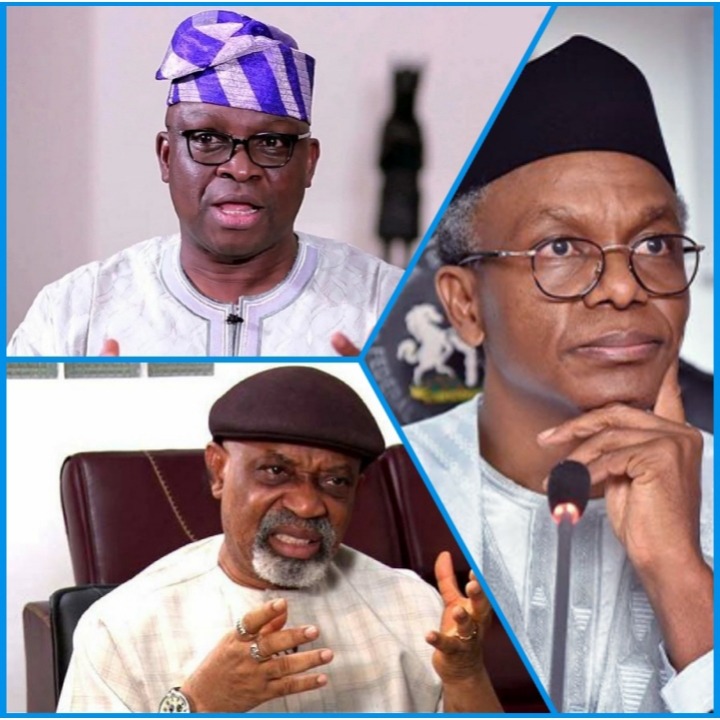


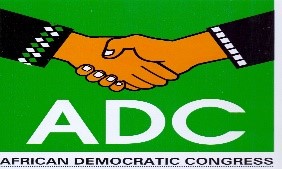
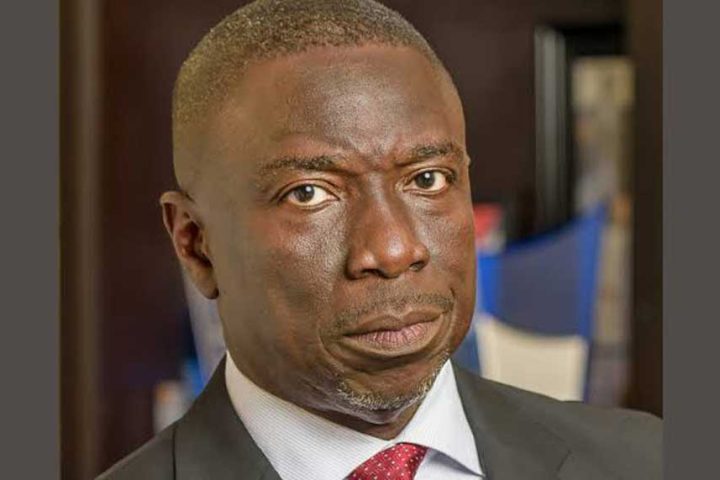








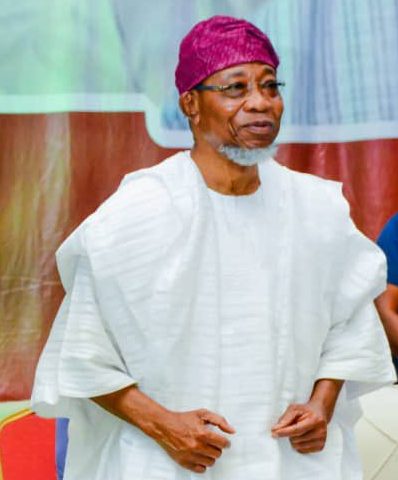
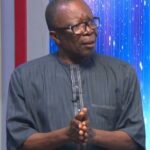
Follow Us